








Spero Men's Recovery Center
Verified Center
This provider's information has been quality-checked by Recovery.com's Research Team for accuracy and completeness, including center verification through appropriate third-party organizations.
Treatment Focus
This center treats substance use disorders and co-occurring mental health conditions. Your treatment plan addresses each condition at once with personalized, compassionate care for comprehensive healing.
Primary Level of Care
Offering intensive care with 24/7 monitoring, residential treatment is typically 30 days and can cover multiple levels of care. Length can range from 14 to 90 days typically.
Treatment Focus
This center treats substance use disorders and co-occurring mental health conditions. Your treatment plan addresses each condition at once with personalized, compassionate care for comprehensive healing.
Primary Level of Care
Offering intensive care with 24/7 monitoring, residential treatment is typically 30 days and can cover multiple levels of care. Length can range from 14 to 90 days typically.
Private Pay
You pay directly for treatment out of pocket. This approach can offer enhanced privacy and flexibility, without involving insurance. Exact costs vary based on program and length of stay. Contact the center for specific details.
Spero Men's Recovery Center
Spero Men's Recovery Center
About Spero Men's Recovery Center
Set in the Colorado wilderness, Spero Recovery Center offers residential treatment for men with addiction and co-occurring mental health conditions. They believe clients get the best results in recovery when they feel like contributing members of a tight community. In addition to clinical and therapeutic guidance, Spero Recovery Center has a strong 12-Step focus and connects clients to a sponsor as part of their program. Their residential program varies from 30-90 days, followed by aftercare and joining their alumni network. As a nonprofit, they offer affordable pricing and scholarship opportunities, as well as payment plan options; Spero does not take insurance for its inpatient program.
Pursuing Recovery as a Team
Spero’s gender-specific programming allows recovery to be tailored to men’s needs and perspectives. They teach clients how to be honest with one another and how to hold each other accountable as part of a team. Clients work through the 12 Steps during their residential stay. Men leave treatment at Step 9 and work through Steps 10-12 with their sponsor and others in 12-Step programs. With oversight from licensed full-time clinicians and substance abuse counselors, men are given the opportunity to evaluate past behaviors, repair relationships, and begin a life free from substances. At Spero Recovery Center, men will have the opportunity to participate in group meetings, experiential therapies, and in the community. Their program is led by their clinical director, who has over 2 decades experience.
Support for Co-Occurring Disorders
Spero Recovery Center can help clients address co-occurring mental health conditions like anxiety, depression, obsessive compulsive disorder (OCD), post-traumatic stress disorder (PTSD), and personality disorders. Their group therapy and wilderness therapy can help manage and overcome symptoms of mental health disorders. Spero’s program does not have therapists, so if a client requests or needs therapy, Spero will provide connections to offsite therapists.
Aftercare & Alumni Program
After residential treatment, men can begin aftercare and join Spero Recovery Center’s strong alumni program. Individualized aftercare plans help each client navigate life in early recovery outside the program, and help maintain motivation and momentum with daily mindfulness and self-care. As part of their aftercare program, men can attend peer meetings and workshops on recovery topics, and learn relapse prevention techniques. Alumni are encouraged to stay active in the Spero Recovery Center community and have indefinite access to their recovery resources. Their alumni program emphasizes service, since individuals in recovery who help others through the process are more likely to gain long-term recovery.
A Home for Adventure & Healing
Located in Evergreen, CO, Spero Recovery Center offers a special space to heal. Their facility has 16 square miles of trails and parks, 2 trailheads, and an on-site woodworking shop. Men can enjoy hiking, rock climbing, skiing, snowshoeing, nature walks, canoeing, kayaking, and fishing at nearby Evergreen Lake. Guest speakers and specialists come on-site to teach clients meditation, yoga, and cooking classes. Room and board in Spero’s nice homes, including all meals, are included in the program.
Highlights from the Center
Highlights
These highlights are provided by and paid for by the center.
Nature Lovers
Customized Treatment Plans
Holistic Approach
Men Only
Center Overview
Treatment Focus
This center treats substance use disorders and co-occurring mental health conditions. Your treatment plan addresses each condition at once with personalized, compassionate care for comprehensive healing.
Joint Commission Accredited
The Joint Commission accreditation is a voluntary, objective process that evaluates and accredits healthcare organizations (like treatment centers) based on performance standards designed to improve quality and safety for patients. To be accredited means the treatment center has been found to meet the Commission's standards for quality and safety in patient care.

Spero Men's Recovery Center
Pricing and Program Length
Estimated Center Costs
The cost listed here ($15,000 / 30 days), is an estimate of program cost. Center price can vary based on program and length of stay. Contact the center for more information. Recovery.com strives for price transparency so you can make an informed decision.




Spero's Behavioral Health Facility
Recovery.com Verified Listing
Recovery.com verified that the name, location, contact information and license to operate for this treatment provider are valid and up-to-date.

Certified by Colorado Agency for Recovery Residences

In Good Standing with Colorado Secretary of State

NAATP Member
Recovery.com is an independent, third-party mental health resource. Verification does not imply endorsement and does not guarantee the quality of treatment services.
Meet Your Care Team

David Johnson
Managing Director
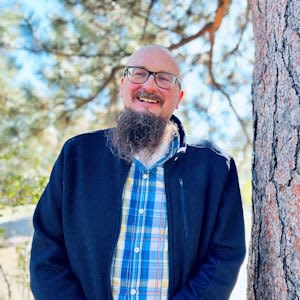
Matt Louzon
Clinical Director

Riley Chowning
Program Manager

Eric Jackson
Program Specialist
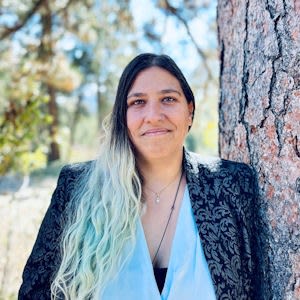
Rellian Merrin
Counselor and Case Manager

Cody Matney
Sober Living and Alumni Manager

Jean Healy
Administrative Director
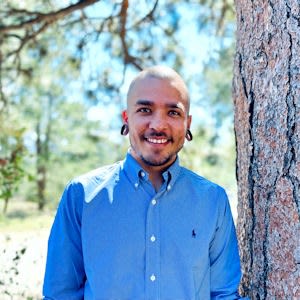
Alex Seng
Admissions Coordinator
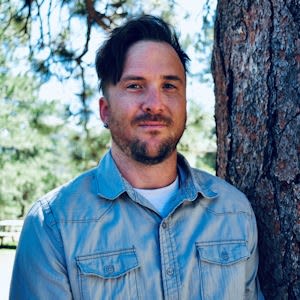
Bret Rausch
Outreach Coordinator
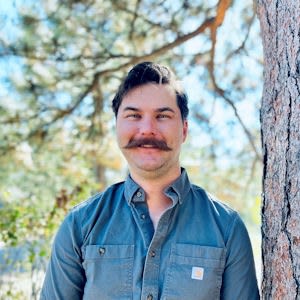
Tanner Zitek
Transport Coordinator
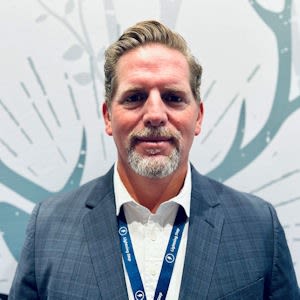
Christian O’Donnell
Chief Marketing Officer
Your Care Options
Specializations
Alcohol
Using alcohol as a coping mechanism, or drinking excessively throughout the week, signals an alcohol use disorder.
Bipolar
This mental health condition is characterized by extreme mood swings between depression, mania, and remission.
Co-Occurring Disorders
A person with multiple mental health diagnoses, such as addiction and depression, has co-occurring disorders also called dual diagnosis.
Cocaine
Cocaine is a stimulant with euphoric effects. Agitation, muscle ticks, psychosis, and heart issues are common symptoms of cocaine abuse.
Depression
Symptoms of depression may include fatigue, a sense of numbness, and loss of interest in activities. This condition can range from mild to severe.
Drug Addiction
Drug addiction is the excessive and repetitive use of substances, despite harmful consequences to a person's life, health, and relationships.
Methamphetamine
Methamphetamine, or meth, increases energy, agitation, and paranoia. Long-term use can result in severe physical and mental health issues.
Who We Treat
Older Adults
Addiction and mental health treatment caters to adults 55+ and the age-specific challenges that can come with recovery, wellness, and overall happiness.
Executives
Executive treatment programs typically directly support the needs of people who manage businesses and may provide flexible schedules and office space to allow work during treatment.
Young Adults
Emerging adults ages 18-25 receive treatment catered to the unique challenges of early adulthood, like college, risky behaviors, and vocational struggles.
Midlife Adults
For adults ages 40+, treatment shifts to focus on the unique challenges, blocks, and risk factors of their age group, and unites peers in a similar community.
Mild Disabilities
Adults with mild physical or intellectual disabilities receive treatment catered to their specific needs in a safe and clinically supportive environment.
Veterans
Patients who completed active military duty receive specialized treatment focused on trauma, grief, loss, and finding a new work-life balance.
Treatment Services
Day Treatment
In a PHP, patients live at home but follow an intensive schedule of treatment. Most programs require you to be on-site for about 40 hours per week.
Intensive Inpatient
The highest level of care, medically managed intensive inpatient services provides 24-hour nursing and physician care.
Intensive Family Program
Some rehabs offer intensive programs for loved ones. Group and individual therapy sessions help everyone heal, and improve family dynamics.
Intensive Outpatient Program
In an IOP, patients live at home or a sober living, but attend treatment typically 9-15 hours a week. Most programs include talk therapy, support groups, and other methods.
Residential
In a residential rehab program, patients live onsite, with access to daily treatment and 24-hour care. An average stay is 30-90 days.
Approaches
Experiential
Expressive tools and therapies help patients process past situations, learn more about themselves, and find healing through action.
Personalized Treatment
The specific needs, histories, and conditions of individual patients receive personalized, highly relevant care throughout their recovery journey.
Twelve Step
Incorporating spirituality, community, and responsibility, 12-Step philosophies prioritize the guidance of a Higher Power and a continuation of 12-Step practices.
Gender-Specific
Separate treatment for men or women can create strong peer connections and remove barriers related to trauma, shame, and gender-specific nuances.
Therapies
1-on-1 Counseling
Patient and therapist meet 1-on-1 to work through difficult emotions and behavioral challenges in a personal, private setting.
Meditation & Mindfulness
A practiced state of mind that brings patients to the present. It allows them to become fully aware of themselves, their feelings, and the present moment.
Mindfulness Therapy
This ancient practice can be mental, emotional, and even spiritual. In meditation, you focus your attention on the present moment without judgement.
Adventure Therapy
This experiential approach uses the physical and emotional challenges of outdoor activities as tools for personal growth.
Attachment-Based Family Therapy
ABFT is a trauma-focused therapy that teaches you to form healthy relationships by rebuilding trust and healing attachment issues formed in childhood.
Animal Therapy
Animals can inspire trust and self-worth. In this experiential therapy, guided interactions are used to improve social skills and emotion regulation.
Art Therapy
Visual art invites patients to examine the emotions within their work, focusing on the process of creativity and its gentle therapeutic power.
Canine Therapy
Friendly dogs provide a pleasant therapeutic experience, helping patients who've experienced trauma or separations build social and communication skills.
Conditions We Treat
Grief and Loss
Grief is a natural reaction to loss, but severe grief can interfere with your ability to function. You can get treatment for this condition.
ADHD, ADD
ADHD is a common mental health condition caused by dopamine imbalance. Common symptoms include inattention, hyperactivitiy, and impulsivity.
Anger
Although anger itself isn't a disorder, it can get out of hand. If this feeling interferes with your relationships and daily functioning, treatment can help.
Anxiety
Anxiety is a common mental health condition that can include excessive worry, panic attacks, physical tension, and increased blood pressure.
Bipolar
This mental health condition is characterized by extreme mood swings between depression, mania, and remission.
Burnout
Burnout entails mental and physical exhaustion, and leads to a severe lack of fulfillment. This condition is often caused by overwork.
Codependency
Codependency is a pattern of emotional dependence and controlling behavior. It's most common among people with addicted loved ones.
Depression
Symptoms of depression may include fatigue, a sense of numbness, and loss of interest in activities. This condition can range from mild to severe.
Suicidality
With suicidality, a person fantasizes about suicide, or makes a plan to carry it out. This is a serious mental health symptom.
Substances We Treat
Alcohol
Using alcohol as a coping mechanism, or drinking excessively throughout the week, signals an alcohol use disorder.
Benzodiazepines
Benzodiazepines are prescribed to treat anxiety and sleep issues. They are highly habit forming, and their abuse can cause mood changes and poor judgement.
Chronic Relapse
Consistent relapse occurs repeatedly, after partial recovery from addiction. This condition requires long-term treatment.
Co-Occurring Disorders
A person with multiple mental health diagnoses, such as addiction and depression, has co-occurring disorders also called dual diagnosis.
Cocaine
Cocaine is a stimulant with euphoric effects. Agitation, muscle ticks, psychosis, and heart issues are common symptoms of cocaine abuse.
Drug Addiction
Drug addiction is the excessive and repetitive use of substances, despite harmful consequences to a person's life, health, and relationships.
Ecstasy
Ecstasy is a stimulant that causes intense euphoria and heightened awareness. Abuse of this drug can trigger depression, insomnia, and memory problems.
Heroin
Heroin is a highly addictive and illegal opioid. It can cause insomnia, collapsed veins, heart issues, and additional mental health issues.
Psychedelics
Hallucinogenic drugs—like LSD—cause euphoria and increased sensory experiences. When abused, they can lead to depression and psychosis.
Languages
Aftercare
Care Designed for Your Needs
Personal Amenities
Amenities
Special Considerations
Center Pets
Addiction and mental health facilities with pets allow patients to interact with friendly dogs, cats, horses, and in some cases, even dolphins.
Young Adults Program
Programs for young adults bring teens 18+ together to discuss age-specific challenges, vocational and educational progress, and successes in treatment.
Activities
Off-Site Activities
Yoga
Yoga is both a physical and spiritual practice. It includes a flow of movement, breathing techniques, and meditation.
Learn More About the Center
In the News
Read recent media coverage about how Spero is making a difference.
Typical Program Schedule
See an example of a typical week at Spero Recovery Center.
The Spero Model
Named after the Latin word for hope, Spero gives hope to an underserved community who are uninsured or unable to pay for treatment.
Spero Recovery Podcast
Listen to Spero’s podcast as they recount stories from individuals in recovery.
What people are saying
Treatment
5.0
Accommodations
5.0
Food & Nutrition
4.5
Value
5.0
BR
Treatment in 2020 • (30 days) • Reviewed 02/15/24
Former Client
•NA
•USA





